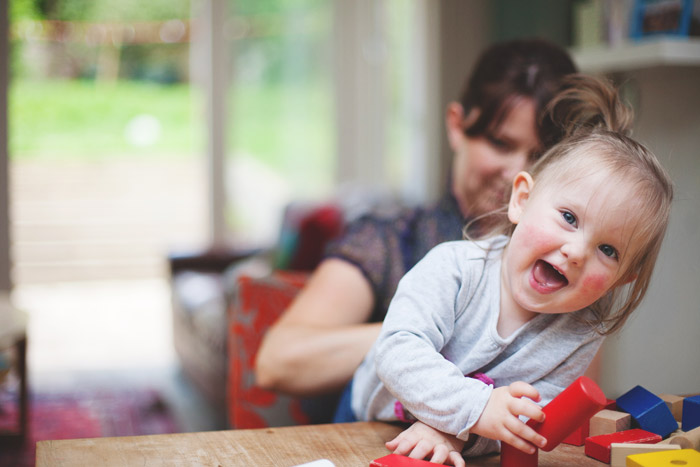Whether you read a library shelf of books before becoming a parent or decided to just wing it, you are no doubt aware that there are many different approaches to and beliefs about how children “should” be reared. Parenting can be a very touchy subject, it comes with lots of strong emotions. It’s easy to make someone feel like you’re questioning their abilities when you’re simply chatting about how you do things at home.
Here at Babytalk we LOVE to talk, even about difficult topics, so we’ve decided to summarise a few of the most commonly discussed parenting styles without the slant the media often creates. You may find that you already use some of these methods or you might discover something new to add to your own parenting toolkit!
Parenting Styles can be loosely split into two main categories, these are Baby Led and Parent Led.
Baby Led parents tend to listen to their baby’s cues about when they would like to feed and sleep and follow a natural pattern that is created through a close bond with their baby. It is a relaxed and non rigid approach that encourages parents to find their own way to be a parent. Parent Led practices focus more on creating structure and routine. Parents lead the way and decide when their baby will eat, sleep and do activities usually based on a carefully timed schedule. This can create a consistent and predictable routine for both parent and baby. You can read more about both Baby Led and Parent Led parenting on the NCT site. You may not have heard of either of the above before, they are usually referred to by different names. Below we have broken both down for you into the more commonly used names:
baby led parenting styles
Attachment Parenting (AP)
AP has been in the news a lot lately but has been around for a long time. Attachment Parenting is about encouraging a strong bond with your child. This is done by being attentive to your baby, responding to crying and often includes co-sleeping and breastfeeding as ways to keep baby close and connected. This allows the baby to become independent at his or her own pace and leads to self confidence in later life. If you like babywearing then AP might be similar to your way of parenting.
Attached Parents believe that a crying baby should always be attended to as loneliness, fear and discomfort are valid reasons to cry. Recent research shows that responding to a baby’s cries leads to less crying overall and does indeed promote later independence and self assurance. Read more about Attachment Parenting.
Gentle Parenting
Gentle parenting has a lot in common with AP (close bonding, attentiveness) but is a bit more flexible. Gentle Parents want to teach by example – showing respect and empathy for their child’s needs and autonomy so the child will show respect and empathy in turn. Discipline is based on consistently set, but flexible, boundaries and parents do not praise or reward children to encourage particular behaviours. Parents who try to be patient during tantrums and try to find their underlying causes have something in common with Gentle Parents.
Gentle parents are mindful of their own needs, they don’t “bring their work home” or let themselves become stressed out. Instead they look for support from others and try to take some time out for themselves before they get frazzled and short tempered. Read more about Gentle Parenting.
Simplicity Parenting
Simplicity Parents allow their children to take their time. They feel it’s important to let children play and explore, especially outdoors, with little direction from the parent. Parents who let their toddler examine every leaf and stone on the way home from the shops may identify with this style! Simplicity Parents prefer to let children choose their own activities after school rather than sending them to organised classes or groups.
A lot of us would rather our kids watched less television. Simplicity parents limit the amount of time their children spend watching television but if they do watch TV, they watch as a family and discuss what they’re seeing. Read more about Simplicity Parenting.
parent led parenting styles
Routine based parenting
Routine based parenting methods are usually based on guidelines and rules from books written by parenting authors. As the name suggests these parenting styles are often focused on establishing and maintaining a structured routine which is led by the parent. Some names that might be familiar are Gina Ford, Tizzie Hall, Ferber etc. Their methods are not usually described by name but rather some of the practices that they advocate are referenced. Read more about Routine Based Parenting.
So, what do you think? Is the idea of a parenting style too rigid for you or do you like the idea of a structure? Do you follow your instinct day to day or do you have goals for your parenting? Did you find that your way of parenting is more similar to those we’ve described than you would have thought?
There isn’t just one way to be a parent and it’s perfectly ok to mix and match to find a way that fits you and your family. Trust your own instincts, if it feels good then go with it, if you’ve read advice in a book or forum but you don’t think it will suit you or your child, then don’t feel that you “have” to follow any rules. Just because your Mum, Dad, Granny, Sister or friend say that a certain way worked for them, it just mightn’t suit you. You are a different person and so is your baby. If someone suggests something to you, do a little research to find out the pros and cons before making your decision. Most importantly, enjoy every little giggle, smile and even the not so pleasant parts – they’ll be gone in the blink of a gorgeous little eye!
Photo by And Baby Makes Three

